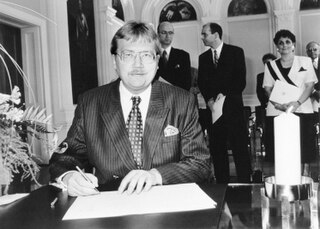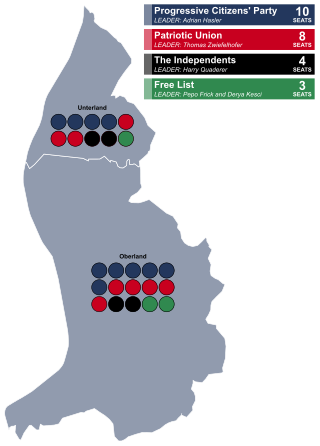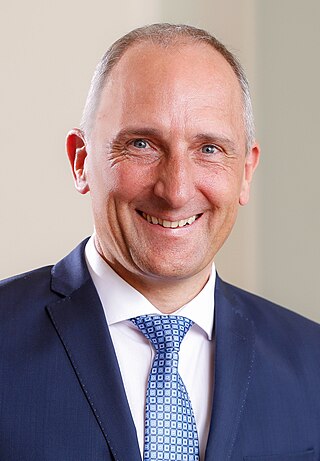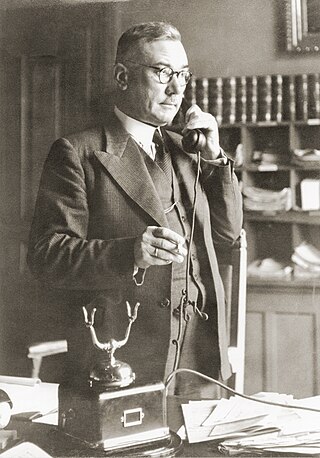| |||||
| Decades: | |||||
|---|---|---|---|---|---|
| See also: | |||||
Events in the year 2013 in Liechtenstein .
| |||||
| Decades: | |||||
|---|---|---|---|---|---|
| See also: | |||||
Events in the year 2013 in Liechtenstein .
| | This section needs expansion. You can help by adding to it. (May 2022) |

Liechtenstein is a principality governed under a semi-constitutional monarchy. It has a form of mixed constitution in which political power is shared by the monarch and a democratically elected parliament. There is a two-party system and a form of representative democracy in which the prime minister and head of government is responsible to parliament. However the Prince of Liechtenstein is head of state and exercises considerable political powers.

Political identity came to the territory now occupied by the Principality of Liechtenstein in 814, with the formation of the subcountry of Lower Rhætia. Liechtenstein's borders have remained unchanged since 1434, when the Rhine established the border between the Holy Roman Empire and the Swiss cantons.

Vaduz is the capital of Liechtenstein and also the seat of the national parliament. The city, which is located along the Rhine, has 5,696 residents. The most prominent landmark of Vaduz is Vaduz Castle, perched atop a steep hill overlooking the city. It is home to the reigning prince of Liechtenstein and the Liechtenstein princely family. The city's distinctive architecture is also displayed in landmarks such as the Cathedral of St. Florin, Government House, City Hall, the National Art Gallery, as well as the National Museum. Although Vaduz is the best-known town in the principality internationally, it is not the largest; neighbouring Schaan has a larger population.

The Progressive Citizens' Party in Liechtenstein is a conservative political party in Liechtenstein. The FBP is one of the two major political parties in Liechtenstein, along with the liberal-conservative Patriotic Union. Founded in 1918 along with the now-defunct Christian-Social People's Party, it is the oldest extant party in Liechtenstein.

Hans Brunhart is a politician and journalist from Liechtenstein who served as the Prime Minister of Liechtenstein from 1978 to 1993.
Mario K. Frick is a lawyer and politican from Liechtenstein who served as the Prime Minister of Liechtenstein from 1993 to 2001.

Alexander Frick was a political figure from Liechtenstein who served as Prime Minister of Liechtenstein from 1945 to 1962.

Markus Büchel was a lawyer and politician from Liechtenstein who served as the Prime Minister of Liechtenstein in 1993. Serving for just under 7 months, he is the shortest serving prime minister in Liechtenstein's history.

Benjamin Büchel is a Liechtensteiner professional footballer who plays as a goalkeeper for Swiss Challenge League club Vaduz, which he captains, and the Liechtenstein national team.

Marcel Büchel is a professional footballer who plays as a midfielder for Italian Serie C Group B club SPAL. Born in Austria, he represents Liechtenstein at international level.

Early general elections were held in Liechtenstein on 24 October 1993 following the dissolution of Parliament on 15 September after a vote of no confidence in Prime Minister Markus Büchel initiated by members of his own party, the Progressive Citizens' Party. The result was a victory for the Patriotic Union, which won 13 of the 25 seats in the Landtag. Voter turnout was 85%.

General elections were held in Liechtenstein on 15 July 1928, with a second round on 29 July. Early elections was called after Prince Johann II forced the resignation of the Christian-Social People's Party government of Prime Minister Gustav Schädler due to an embezzlement scandal at the National Bank of Liechtenstein. The result was a victory for the opposition Progressive Citizens' Party, which won 11 of the 15 seats in the Landtag. Voter turnout was 93%.

General elections were held in Liechtenstein on 4 April 1939. Although a new system of proportional representation had been introduced to pacify voters at a time when the country was under threat from neighbouring Nazi Germany, it was not used and the elections became known as the "silent elections" as no actual vote was held. Instead, the governing Progressive Citizens' Party and opposition Patriotic Union formed a coalition, assigning a roughly equal number of seats each, in order to prevent the German National Movement in Liechtenstein from acquiring any seats in the Landtag.

General elections were held in Liechtenstein on 3 February 2013, using a proportional representation system. Four parties contested the elections; the centre-right Patriotic Union (VU) and Progressive Citizens' Party (FBP), centre-left Free List (FL) and newly created populist alliance The Independents (DU).

Adrian Hasler is an economist and politician from Liechtenstein who served as Prime Minister of Liechtenstein from 2013 to 2021.

Franz Josef Hoop was a Liechtensteiner diplomat and politician who served as Prime Minister of Liechtenstein from 1928 to 1945. Hoop is best known for his efforts to retain Liechtenstein's neutrality and independence during World War II. Serving for seventeen years, he is the longest-serving prime minister in the country's history, ahead of his successor Alexander Frick by 79 days. He served under the reign of Johann II, Franz I and Franz Joseph II, making him the only prime minister to serve under three Princes of Liechtenstein consecutively.

Sabine Monauni is a politician from Liechtenstein who has served as the Deputy Prime Minister of Liechtenstein since 2021.

Anton Frommelt was a pastor and political figure from Liechtenstein who served as the Deputy Prime Minister of Liechtenstein from 1933 to 1938. He was also President of the Landtag of Liechtenstein from 1928 to 1944.
Pepo Frick is a physician and political figure from Liechtenstein who served in the Landtag of Liechtenstein. He is the current leader of the Free List, alongside Conny Büchel-Brühwiler.

The Markus Büchel Brunhart cabinet was the governing body of Liechtenstein from 26 March to 15 December 1993. It was appointed by Hans-Adam II and was chaired by Markus Büchel.